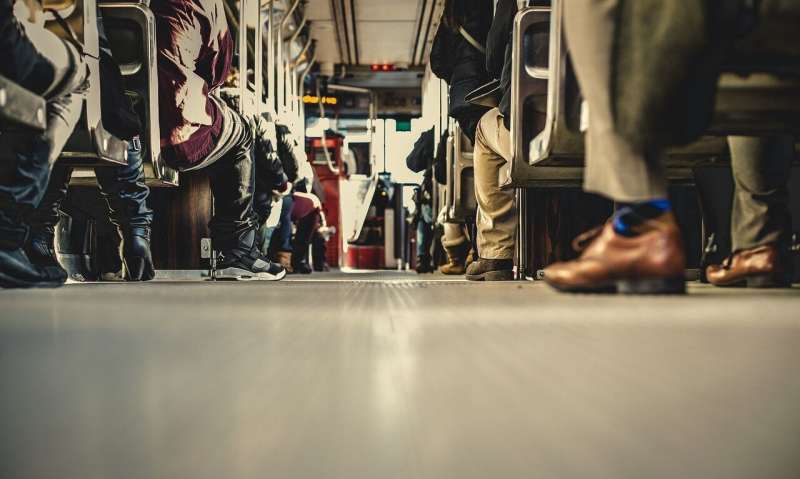Credit: Pixabay/CC0 Public Domain
Researchers have studied the COVID-19's impact on work and travel patterns in Swedish public agencies.
Results indicate a more long-lasting impact on the way we meet in business than in our commuting habits.The COVID-19 crisis has rapidly led to one of the most revolutionary changes in our private and professional lives. Isolation and travel restrictions have resulted in a dramatic reduction in the demand for passenger transport, not least public transport, as people are afraid of being infected by other travellers.
"We do not yet know how extensive or long-lasting this condition will be, but we can already see effects on travel patterns. This is the case also in Sweden, even though Sweden has taken a liberal approach to social distancing for COVID-19, relying on people to monitor themselves for symptoms, stay home when ill, practice good hand washing and avoiding crowds," says Lena Winslott Hiselius from Lund University.
People in Sweden are advised not to travel, neither in business nor privately, unless it's considered necessary. Regarding commuter travel, advice from the public health agency is to work from home, if possible, and to avoid travelling during rush hours. Physical distance to other people should be maintained when using public transportation.
Besides handling the effects of COVID-19, the transport system also needs to transform in order to reduce greenhouse gas emissions. One approach to reduce the demand for transport is to increase the use of digital access to various societal functions. Due to the COVID-19 pandemic this is tested in what can be seen as a gigantic "full-scale experiment" and the know-how gained in how to collaborate and meet virtually is likely to have remaining effects.
Several Swedish public agencies have already been involved in a project to increase the share of virtual meetings in their business communication. This has resulted in a decrease in travel volume and hence emitted CO2 emissions per employee, however at a declining speed in recent years.
"Our study on the implications on meeting and travel behaviour due to the COVID-19 pandemic, focuses on commuting trips and business trips at five public agencies. We thus seek to analyse the additional effects of the current recommendations and restrictions, on top of what has already been achieved within these agencies," says Lena Winslott Hiselius.
The study is based on self-estimated behaviour and attitudes before and during the COVID-19 pandemic. Results indicate that there has been a massive change in commuting trips as well as business travel. 86 percent of the replicants stated that they changed their commuting trips under the COVID-19 pandemic. For business travel, which is commonly seen as an intrinsic part of the business culture and thus difficult to change, only three percent of those who travelled in business before the pandemic continued to do so. The vast majority of all planned meetings and other errands was conducted as virtual meetings.
"Taken together, these results indicate that the public authorities surveyed were prepared and had a "collaboration redundancy," at least technically, so that they could make a rapid behavioural shift when travel was not an option," says Peter Arnfalk from Lund University.
When asking the respondents to what extent they think that these virtual meeting and collaboration routines will remain once the epidemic has levelled off, the vast majority think we will become much better at collaborating virtually, and that the ways we do work will significantly change. The view of whether commuting will go back to normal is on the other hand more conservative where the majority state that they believe that this will be the case.
"There is great potential in a change in behaviour where digital tools provide an opportunity to influence if and how we commute and do business trips. The COVID-19 pandemic has shown that it is possible to make the impossible possible," Peter Arnfalk concludes.
This survey was conducted in mid-April 2020 by Peter Arnfalk and Lena Winslott Hiselius, both from the Swedish knowledge centre for public transport, K2 and Lund University. The survey contained questions on individual characteristics, commuting and business travel, attitude to and choice of travel mode but also questions related to use of telework and virtual meetings and was answered by 719 respondents working in Swedish public agencies.
Provided by K2 – Nationellt kunskapscentrum för kollektivtrafik
























